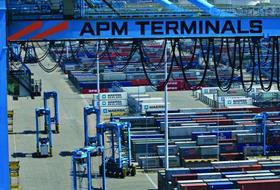
Pressure is mounting on the UK to adopt a customs clearance concept to fast-track fruit and vegetable imports from the Netherlands and hopefully avoid trade disruption after Brexit.
‘Green Lanes’, a digital pre-clearance system specifically for perishable products, would allow customs checks to be carried out before lorries arrive at ports, with information such as product origin being uploaded to a database.
Approved vehicles would be given a so-called “green lane”, allowing them to avoid any customs queues.
The idea is not a new one – indeed the Dutch fresh produce and flower industries have already helped develop the technology so it is ready to implement in the event of a hard Brexit.
The problem is that the technology must be agreed by the UK before it is rolled out, and Gert Mulder, who heads upGroentenFruit Huis, the national fruit and vegetable growers' body,told the BBC that the British government has so far been reluctant to agree to the new system.
'The British cabinet members I've spoken to push it away,' Gert Mulder told the BBC.
'Within days after Article 50 was triggered, we were already talking to Defra. The problem is we need the British to make decisions and we can't have bilateral talks until after the Brexit negotiations.'
Britain’s customs authority has said maintaining the free flow of goods is of vital importance, but it told the BBC it would not compromise on UK border security.
Fruit and vegetables are the Dutch exports most at risk of being disrupted after Brexit, with additional checks on plant health, food safety and marketing standards set to cause major tailbacks.
The BBC reported that customs officials predict a 30 per cent increase in import inspections and a 100 per cent increase in export inspections.
Ultimately, a no-deal Brexit could reduce the volume of produce the UK receives from the Netherlands, with a study by the Organization for Economic Cooperation and Development (OECD) calculating that Dutch exports to the UK could drop by 17 per cent.



